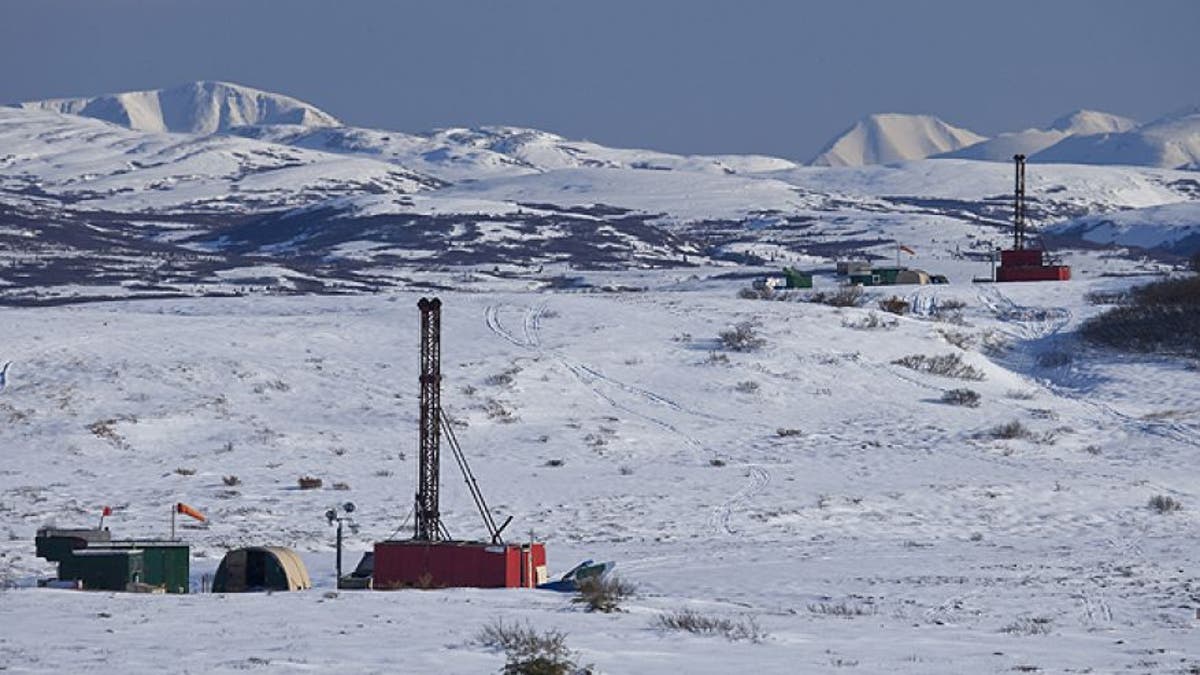
The Pebble Partnership says it was not treated fairly by the EPA in regards to what may be the largest undeveloped copper deposit in North America, located in southwest Alaska. (Pebble Partnership)
A proposed Alaskan copper mine that would be one of the world's largest never had a chance with federal regulators, who made up their minds without giving Pebble Mine's backers a fair shake, according to a report released this week by a former Pentagon boss.
William Cohen, the former Republican congressman from Maine who served as secretary of defense under President Bill Clinton, charged in the 346-page report that the Environmental Protection Agency "failed to address important considerations" during permitting procedures and relied on hypothetical outcomes in order to deny the open-pit mine on state-owned land 200 miles southwest of Anchorage.
"After a very thorough review, I do not believe EPA used the fairest and most appropriate process," wrote Cohen, who when hired by Pebble Partnership pledged to follow the facts and not an agenda.
"After a very thorough review, I do not believe EPA used the fairest and most appropriate process."
While the project generated vocal opposition from environmental groups and Native Americans in Alaska, the EPA should have given more consideration to the economic activity it would have created, the report said. It also should have considered steps the partnership, once a syndicate of international mining companies but now just Canadian mining company Northern Dynasty Minerals, would take to mitigate environmental impact, the report said.
Pebble still has not submitted a formal permit application detailing its specific plan, but a preliminary application for right to use water for the project prompted the EPA to commission an environmental impact statement that found it would violate the federal Clean Water Act. Pebble officials say the decision was based on gross exaggeration of the project's size and scope, including claims it would be nearly as deep as the Grand Canyon and generate enough waste to fill 3,900 football stadiums. Those "hypotheticals," according to the partnership, signaled that the project would not get a fair hearing. Supporters say it is the main reason several international mining companies backed out of the partnership. The Wall Street Journal, in an editorial, labeled the initial action as a "preemptive veto" of the mine.
Pebble Partnership is suing the EPA over what it charges is an abuse of the agency's regulatory authority.
Cohen's investigation included review of 42,000 documents obtained by a Freedom of Information Act request and interviews with dozens of stakeholders with various opinions on the mine, although the EPA and U.S. Department of Justice declined to allow current employees to talk to Cohen's team. The report from Cohen, a former politician and cabinet secretary respected on both sides of the aisle in Washington, may add heft to the position of Pebble Partnership, which is still fighting in court to revive the project.
"I hope it will be helpful to the (EPA inspector general), to members of Congress," Cohen said told The Alaska Dispatch News. "The best thing to do is have a congressional hearing and explore these issues."
But critics of the project dismissed Cohen's report as the work of a hired hand who broke no new ground.
"There's nothing new here except for the fact that William Cohen has now been added to the company's list of paid consultants," wrote the National Resources Defense Council. "The report reads like an extended Pebble press release and that’s exactly how the public -- and the EPA -- should treat it."
Pebble Partnership has spent hundreds of millions of dollars since 2007 studying what it believes is a copper deposit worth as much as $300 billion.
The EPA issued a press release following Cohen's report, maintaining that "no process could have been more transparent and inclusive of all views." The agency said it did not take any final action on the project and said there was never a "preemptive veto."
"Pebble can apply for a permit whenever it wants," the statement said.
Pebble Partnership spokesman Mike Heatwole told FoxNews.com the EPA has been anything but transparent and the only reason the agency "did not take a final action" is due to an injunction issued by a federal judge. He said the partnership is studying all the details to ensure that the project is viable and will pass the National Environmental Policy Act.
"We're not looking to rush anything," he said.
Pebble's lawsuit, which alleges the EPA's related decisions amounted to a de facto blocking of the overall project, could prove embarrassing for the agency. Opponents of the project have already been subpoenaed with Pebble attorneys trying to prove they colluded with EPA regulators. Phillip North, a former key EPA official based in Alaska, retired two years ago and the agency claimed that most of his government emails were lost after his hard drive crashed. North is due in court next month.
The EPA's inspector general has been reviewing the agency's role in the project since May, 2014, to determine that it followed its own policies during its assessment of Pebble Mine's potential impact on Bristol Bay. A spokeswoman said the inspector general took on the review after requests from members of Congress and others. A ruling is expected by early 2016.
Follow @EDeMarche on Twitter
























